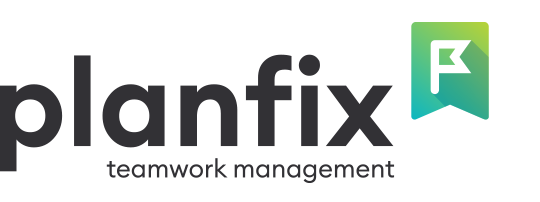
Task management systems are indispensable tools that allow you to organize and manage your workload efficiently. Task management software offers several advantages, including a more effective workflow and higher productivity. In this article, we examine why you need task management software, its benefits, and the features that make it essential for personal and professional use.
Why Do You Need Task Management Software?
Task management software is essential for anyone looking to improve their organizational skills and productivity. It helps keep track of tasks, set deadlines, and manage time efficiently. Whether you have multiple projects at work or personal commitments, this software ensures you always stay on top of things. Task management programs can significantly streamline your workflow and make it easier to achieve your goals. Below, we discuss several advantages of task management to show how it can improve your overall efficiency and effectiveness.
Advantages of Task Management Software
Task management software offers a variety of benefits that significantly improve the management of projects and daily tasks. Let’s take a closer look at the most important advantages of these systems:
Organization and Clarity
Task management tools provide a centralized platform for tasks, projects, and deadlines, helping you maintain order and focus while simplifying your overall user view. With everything consolidated in one place, you can quickly identify task priorities and avoid missing crucial tasks.
Productivity and Efficiency
Task manager software helps you prioritize tasks, set deadlines, and track progress, allowing you to work more efficiently and achieve more in less time. For example, task tracker software can help you identify urgent tasks and allocate resources more efficiently.
Reduce Stress and Prevent Becoming Overwhelmed
Task management systems can alleviate the feeling of being overwhelmed by breaking down large projects into smaller, more manageable tasks, making it easier to handle each part of the project. For instance, a large project like a marketing campaign can be divided into tasks such as content creation, social media campaigns, and analytics, making it less daunting.
Improved Time Management
Task tracking software helps monitor the time spent on different tasks and allows you to identify areas for greater efficiency and better use of time. For example, if a task takes longer than expected, you can adjust your schedule or resources to increase productivity.
Increased Accountability
Task management software enhances the accountability of team members. By setting clear deadlines and expectations, it keeps everyone on the same page and focused on common goals. For example, assigning tasks with specific deadlines and monitoring their progress ensures that each team member is accountable for their part of the project.
Employee Morale
Task manager programs can improve employee morale by giving them a sense of ownership and control over their work. When employees know what is expected of them, they are more likely to stay motivated and committed. For instance, a transparent task program allows employees to see their contributions, leading to a sense of accomplishment and job satisfaction.
Task Reminders and Notifications
Task management software can automatically send notifications and reminders to team members about upcoming deadlines and tasks, ensuring nothing is overlooked. For example, you can set up reminders for weekly meetings or project deadlines to keep everyone informed and on track.
Customizable Workflows and Templates
Task management software features usually allow you to customize workflows and task templates to suit your needs, making the software more effective. For example, you can develop templates for repetitive projects such as monthly reports to save time and maintain consistency.
Integration with Other Productivity Tools
Task management programs integrate with other productivity tools such as messaging apps, task chat, email, PBX, SMS, cloud storage, maps, and more. These integrations creates a seamless workflow and eliminates the need to switch between different platforms. For example, by integrating your task management software with your email system, you can create tasks directly from emails, optimizing your workflow.

Mobile Access
Many online task managers offer mobile applications that allow users to access their task lists, projects, and deadlines from anywhere. Mobile access is especially useful for teams working in different locations or for employees who are frequently on the move. For example, a project manager can update project status and assign tasks during a business trip to ensure continuous progress.
Scalability to Support Growing Teams
Task management software can support teams of any size, from small groups to large organizations with hundreds or thousands of members. This scalability ensures that the software remains efficient as your business grows. For example, a multilingual startup company can continue using the same task management system, select a language for each user as team expands and without needing to switch platforms.
Cost-Effective Solution
Task management software is often much cheaper than hiring a project manager or administrator, leading to significant savings for businesses of all sizes. For example, a small business can organize and track projects with task management software without hiring additional staff, allowing it to allocate resources more effectively.
Improved Decision-Making
Task management software helps gather the data and information needed to make informed decisions, especially for complex tasks with many variables. Detailed reporting and analytics, for example, provide insights into project performance and help managers make data-driven decisions.
Increased Customer Satisfaction
Task management software can track customer interactions and resolve issues quickly, improving customer experience and increasing loyalty. For example, a Customer Service or Help Desk team can use task management software to handle requests efficiently, increasing customer satisfaction and loyalty.
Security
Task management software helps protect sensitive information and data by ensuring regulatory compliance and minimizing risk. Security features such as encryption and access controls protect project details and confidential information, providing organizations with sensitive data peace of mind.
Learning and Development
Task management software supports employee learning and development by providing access to training materials and resources, leading to increased skills and business growth. For example, integrating task management software with learning systems improves HR management, allowing employees to track their progress in training programs and access learning content directly through the platform.
Transparency
Task management software increases transparency in your projects and tasks, helping all participants stay informed and make better decisions. For instance, team members can view project timelines and updates in real-time, ensuring everyone is on the same page and can collaborate effectively.
Flexibility
Task management software helps you adapt to changing conditions by allowing easy reassignment of tasks, adjustment of deadlines, and changes in assignees. For instance, if a project scope changes, you can quickly update the task list and reassign responsibilities to keep the project on track.
In conclusion, task management software can help businesses improve efficiency by enhancing productivity, reducing costs, and increasing customer satisfaction. By leveraging these tools’ features and benefits, companies can optimize their processes and achieve greater success.
Task Management Software Features
Task management software has many features designed to increase productivity and streamline project management. Let’s take a look at some of the key features these systems offer:
Task Decomposition
Task decomposition allows users to break down complex tasks into smaller, more manageable subtasks. This feature increases efficiency in task management and provides a better overview of the tasks that need to be done. For example, a product launch can be broken down into smaller tasks such as conducting market research, creating content, and planning promotional activities.
Task Reporting and Analytics
Task reports and analytics provide important insights into task performance, accountability, and deadlines. You can generate reports and evaluate data to track a task’s progress, identify responsible parties, and monitor deadlines. For example, if a project is running behind schedule, task analytics can help identify bottlenecks and areas for improvement.
Task Visualization Tools
Task management tools provide a clear, visual overview of all tasks on a single page. These tools help users understand what needs to be done, who is responsible for it, and what deadlines apply to each task. This visual approach improves task management efficiency and collaboration between team members. For example, a Kanban board or Gantt Chart can display tasks’ status and progress in real-time.

Planfix: All-in-One Task Tracking
Planfix integrates all the features mentioned above and offers a comprehensive set of tools for task management. Planfix web-based task management system combines task decomposition, reporting, analysis, and visualization tools into a robust task management solution. Other benefits of Planfix include customizable workflows, mobile accessibility, and smooth integration with other productivity tools.
FAQ: Advantages of Task Management
Why Is It Essential to Use Task Management Software?
Using task management software is essential because it helps to organize tasks, set deadlines, and monitor progress effectively.
This software increases productivity by providing a clear overview of all tasks, improving time management, and encouraging team collaboration.
What Are the Advantages of Task Management Software?
Task management software offers several benefits, such as better organization, increased productivity, and improved time management.
It also promotes accountability among team members, reduces stress by breaking down large projects into smaller tasks, and provides valuable insights through reports and analytics.
What Are the Functions of Task Management Software?
Task management software typically includes task decomposition, reporting, analytics, and visualization tools.
These features help break down complicated tasks, provide insights into task performance, and offer a visual summary of tasks, deadlines, and responsibilities, improving overall task management effectiveness.
Final Thoughts
Task management software is essential for increasing productivity and optimizing workflows in both personal and professional settings. If you’re seeking a comprehensive solution, Planfix’s business process management system offers all these features. Planfix provides customizable workflows, mobile access, and seamless integration with other productivity tools. Sign up for a free trial and experience the platform’s benefits firsthand.

